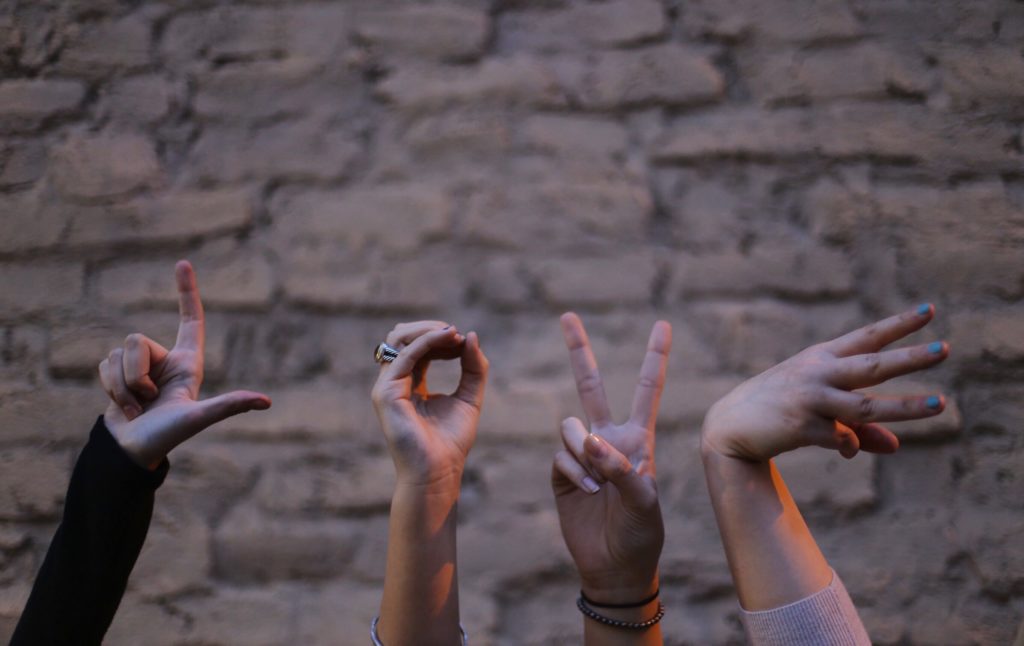“Is an open marriage a happier marriage,” a recent New York Times magazine cover story written by Susan Dominus asked. With a headline and topic like that, of course it went viral — as if no one ever considered that consensual nonmonogamy has existed for decades and, yes, it might actually be a good thing for the couples who want it and choose it.

Monogamy is a choice, but admittedly one few of us rarely question — we generally just assume it’s a given once we get serious with someone. Still, isn’t it a bit specious to ask if open relationships are happier? Some may be and others may not, and who defines “define”?
There were more than 1,600 comments, prompting a follow-up story in the Times — “We choose each other over and over because we want to: Readers share their open-marriage stories” — in which numerous people speak of their experiences of engaging in ethical non-monogamy.
The follow-up article’s intro states:
For nearly a year, Dominus reported on couples engaged in consensual nonmonogamy (what some involved call polyamory), and returned with a collection of fascinating stories about jealousy, love, desire and trust, all within the loose confines of an open relationship.
I am not in a consensual nonmonogamous relationship nor am I poly nor am I an expert in either. That said, I spent months researching consensual nonmonogamous relationships for The New I Do and spoke to numerous people who opened up their marriage or who chose it from the get-go because they’d never even consider getting married without monogamy being discussed and mutually agreed to, and even I know that being in a consensually nonmonogamous relationship hardly has “loose confines” — most people who mutually agree to choose it have explicit agreements on what’s OK and what’s not OK; even if they don’t, successfully navigating it requires a lot of communication and transparency. It’s hardly “loose.” (I think I would find it exhausting, which is why I prefer to be a serial monogamist.) Finally, consensual nonmonogamy is not exactly the same as being poly, although being poly is most definitely one way to be consensually nonmonogamous.
The problem with being in ‘the poly lifestyle’
I have to imagine that irks poly people. You just can’t lump every consensual nonmonogamous person into a little box, nor can you lump poly people into being “in the lifestyle.” As my friend Carrie Jenkins — philosophy professor at the University of British Columbia and author of What Love is and What it Can Be and a polyamorous woman — says in a series of tweets:
A quick thought about the phrase ‘the poly lifestyle.’ There’s not one thing that is ‘the’ poly lifestyle. There are infinitely many ways to be a poly person with a life. And a style. Likewise, many poly communities exist. There’s no such thing as ‘the’ poly community. This matters because depicting us as a homogenous mass can be a way of marking us as ‘those people over there.’ In reality we are all over the place, and many of us look so ‘normal’ that you don’t know who we are.
Dominus veers into that when she writes, “Divorce, or not marrying in the first place, might seem like a more logical response to a desire for openness,” as if openness can’t occur within the confines of a loving, committed relationship! Because, it does.
We do need healthy models of consensual nonmonogamy, because as I’ve written before, everything we think about nonmonogamy has to do with cheating and deception, or promiscuity. While Dominus’ article certainly brings the conversation to the forefront — it is the New York Times Magazine, after all — the people she hooks the article on are, as Patterson notes, basically telling “a sad story of floundering marriages.” True, that’s part of the story of how some people decide to open up their marriage but it’s a limited discussion. That said, maybe that’s most people’s reality — it’s certainly an ongoing discussion on this blog.
The monogamy conversation
In The New I Do we detail just how important it is for people to have the monogamy conversation, and continue to have it as circumstances change. That would be ideal.
At the same time, I acknowledge many of us don’t stick to our ideals and beliefs, or get scared or complacent or … well, you know. Hey, I’m guilty, too. So, maybe Dominus’ article — like the Ashley Madison hack almost two years ago — will get those conversations going.
It seems like we need to be reminded of that every once and a while, which often occurs through a high-profile infidelity scandal or a controversial new book or article. Consider yourself woke.
The best thing that could happen would be that the article has made you think about monogamy right now and you’re asking yourself, how could you live your most authentic sexual life — not the life you think you should have.
Is an open marriage or relationship a happier one? Only you can figure that out for yourself.
Want to explore consensual nonmonogamy? (Of course you do!) Read The New I Do: Reshaping Marriage for Skeptics, Realists and Rebels (Seal Press). Order the book on Amazon.

















Exactly! Marriage is not for everyone and everyone’s needs and expectations are at least a little different. People have to learn to be honest with themselves and do what is right for them. I am not always good at this, but it is what I strive for.
I repeat: as far as marriage goes there is absolutely nothing in it for a man. For women and children, yes, but not for a man. If you are a guy be smart – DO NOT GET MARRIED!